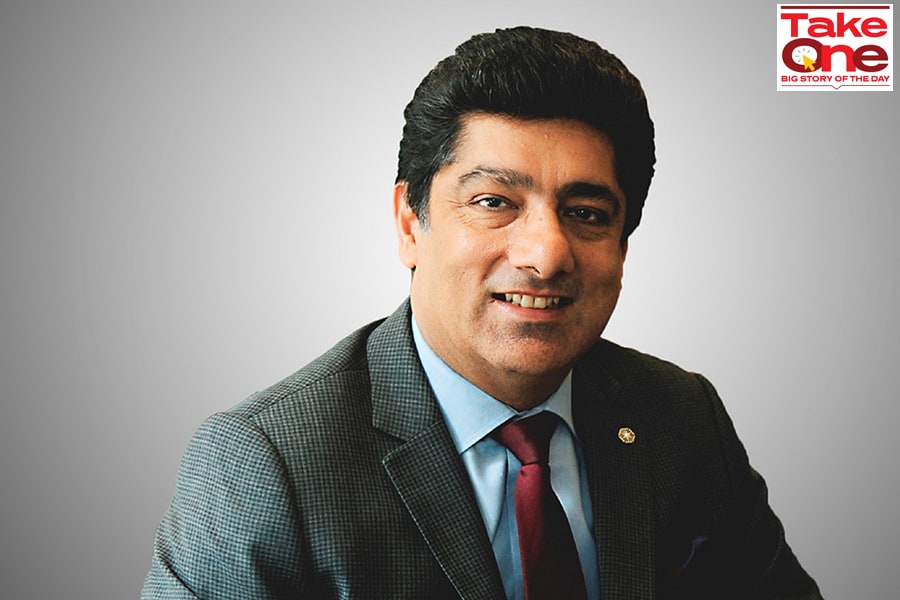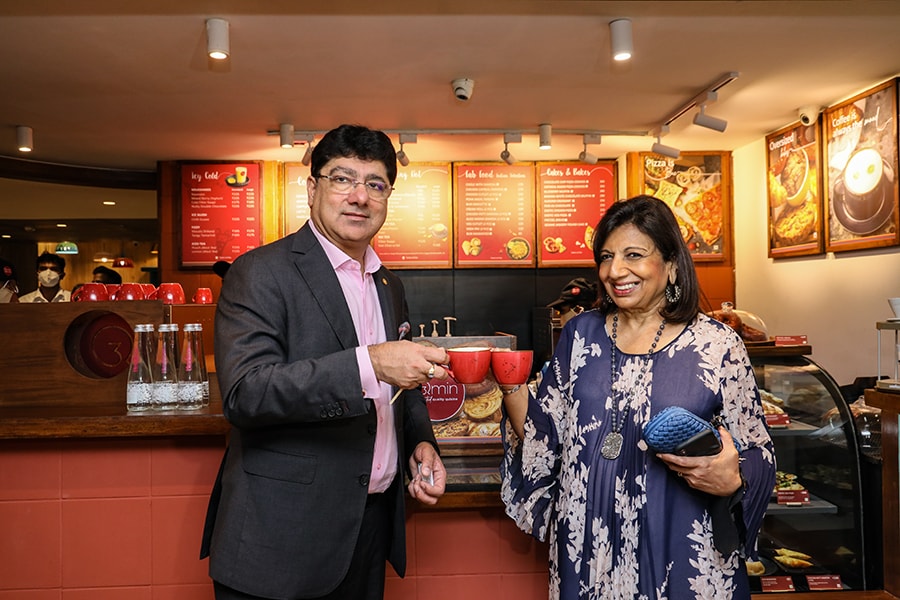Qmin, a culinary and food delivery platform, is one such innovation by the Indian Hotels Company Limited (IHCL). The IHCL and its subsidiaries include Taj, SeleQtions, Vivanta and Ginger hotels.
Introduced in June 2020, the Qmin app helps deliver dishes across 20 cities, from 90 IHCL restaurants spread over 35 hotels. Most recently, IHCL announced the opening of 11 new Qmin outlets in Bengaluru that will offer an array of bakery and confectionary products, in addition to a wide selection of teas and coffees.
Q. Qmin started as an app-based delivery model. What was the idea behind launching the stores?
For the first time, we had the opportunity to experiment something outside the hotel [premises]. After being in the hotel business for almost 120 years (IHCL was incorporated in 1903), we had to venture out and this is leveraging all the other businesses that we have. Something like Qmin also gives us scale. And no better to city than to do it in Bengaluru where by virtue of other industries, it attracts a young, informal crowd. Another important reason for us to do this was also because it will broaden the brand’s reach and cater to a diverse audience.
Q. Tell us more…
This is our youngest brand that was born during the pandemic. When Covid-19 struck, it questioned a lot of business models and traditions. Going with the flow was important, but one had to embrace the change and try selectively without taking too much risk.
As the world was moving on, from a risk perspective, we thought, it is not a risk. From an opportunity perspective, it was a big one. So we thought, what we can do in a hotel, why can’t we do it outside? For us, it’s just an extension of the brand, because being in the hospitality business, it does not mean too much expenditure. It comes at an incremental cost—we have the chefs, the kitchens, the staff and the equipment. Therefore, it is all cost efficient for us.
Q. So, Qmin has become an important part of the overall restaurant business?
With the idea that we should not do things half-heartedly, when we decided to go ahead with Qmin, we did so with full conviction. And I know it will become bigger than what it is today. The home delivery business, in 20 months, has extended to 20 cities, there are 15 quick service restaurant (QSR) outlets (four have recently opened in New Delhi), another five or six will hopefully be inaugurated in the next six months. We have scaled despite being in very challenging circumstances. Is it good enough? No. We need to scale faster, because in this kind of business, scale is very important.
![]() Mr. Puneet Chhatwal, Managing Director and CEO, IHCL & Ms. Kiran Mazumdar Shaw, Executive Chairperson and Founder, Biocon Biologics at the inauguration of a Qmin outlet in Bengaluru
Mr. Puneet Chhatwal, Managing Director and CEO, IHCL & Ms. Kiran Mazumdar Shaw, Executive Chairperson and Founder, Biocon Biologics at the inauguration of a Qmin outlet in Bengaluru
Q. How profitable has Qmin been?
It has been profitable from day one because as I said, it was only an incremental cost for us. All we had to do was use the existing features. There are zero upfront capital costs. Additionally, ventures like Qmin are high margin businesses even though they may not contribute the traditional amount of revenue one needs from businesses. But we are looking at Qmin contributing to 2.5 percent to 3 percent to our revenues. However, from a margin perspective, this has a 50 percent contribution margin.
Overall, our revenues from restaurants are back to pre-Covid-19 levels despite a 50 percent reduction in seating.
Q. What steps did the management take to tackle the pandemic?
In the pandemic, we had to go back to our drawing boards and come up with a new strategy came to be known as RESET 2020. It stood for revenue initiatives, excellence, spend optimisation, effective asset management, and thrift and financial improvement. Despite the entire industry suffering losses including us, per consensus from our analysts, we did better than anybody expected, due to the help of new businesses like Qmin.
Q. What changes have you noticed ever since the pandemic struck?
We have been hurt as an industry, but we have not been knocked out. Our industry is like a plastic ball in water—you keep pushing it, but the minute you leave it, it bounces back. In the pandemic, we bounced back. The industry learned that it had to readjust its cost base.
The F&B industry realised that when there is very little income, you take a step back. In Asia, and in India in particular, we tend to over service. So, I think that will change.
But the sense for sustainability, for being socially conscious—both on the part of hotels, as well as customers—"‹has significantly gone up.
For the hotel industry, we had the once in a lifetime opportunity to question, do we need to do all this. To question what is a must have, good to have, not necessary to have or just to discard.
Q. You have seen the world. What would you want to bring to the Indian hospitality sector?
A greater sense of collaboration among players. The feeling of ‘we’ rather than ‘I’ making a difference needs to be brought in. How do leading hotels, airlines, and travel companies help reposition F&B and tourism as a sector in India. It is not about my Taj, or my Qmin alone, it is about how we can all come together for a better future.
Q. How do you think the hospitality sector fared during the pandemic?
I think we worked selflessly. In supporting the local communities, helping creating space for testing centres and quarantining, I can say the hospitality industry demonstrated character. It is a sector that works 365*24*7 and [is] not highly paid, but it never fails. I am highly optimistic for the future of the sector, both globally, and in India, because it will play a huge role in the next couple of decades in positioning the country on the global map and adding value to the economy, lives, livelihoods and Gross Domestic Product (GDP) of the country.
Q. What makes Taj hospitality one of the best in the business?
Taj will remain the pride of the group and the nation. It is the world’s strongest hotel brand and India’s strongest brand across all sectors. We are not into institutionalised hospitality. It is a 360-degree value proposition inculcated in the group by the founder himself who said the community is not just another stakeholder, rather the purpose of the existence of any business. That is the base of our value system.

 Puneet Chhatwal, managing director and chief executive officer of IHCL
Puneet Chhatwal, managing director and chief executive officer of IHCL  Mr. Puneet Chhatwal, Managing Director and CEO, IHCL & Ms. Kiran Mazumdar Shaw, Executive Chairperson and Founder, Biocon Biologics at the inauguration of a Qmin outlet in Bengaluru
Mr. Puneet Chhatwal, Managing Director and CEO, IHCL & Ms. Kiran Mazumdar Shaw, Executive Chairperson and Founder, Biocon Biologics at the inauguration of a Qmin outlet in Bengaluru